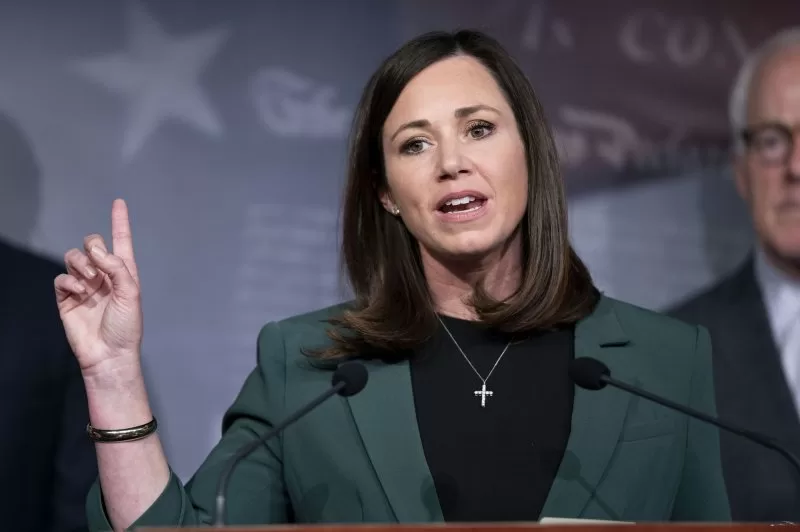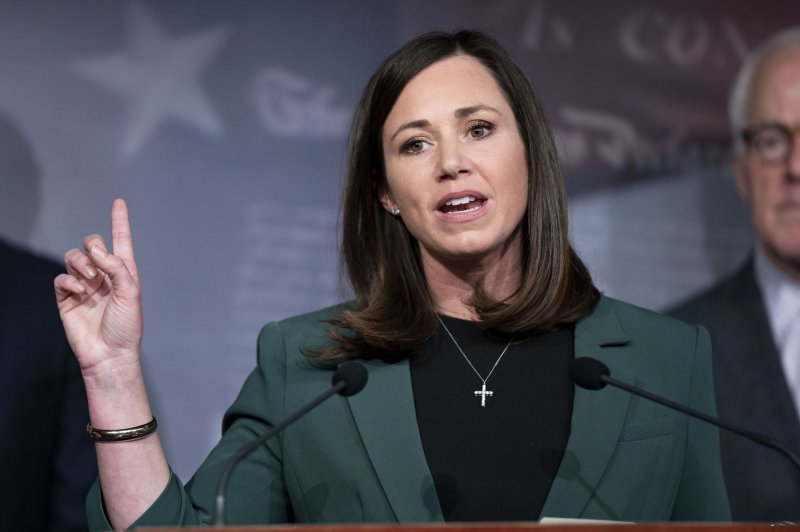Sen. Katie Britt, R-Ala., speaks during a press conference on border security at the U.S. Capitol in Washington, DC on Thursday, December 7, 2023. Britt on Friday announced she was co-sponsoring a bill that would boost resources for pregnant women but that critics argue would create a database for the government to monitor them. File Photo by Bonnie Cash/UPI |
License PhotoMay 10 (UPI) — A group of Republican senators on Friday introduced legislation aimed to steer women away from abortion by boosting access to resources for pregnant women.
Sens. Katie Britt, R-Ala., Marco Rubio, R-Fla., and Kevin Cramer, R-N.D., are co-sponsors of the More Opportunities for Moms to Succeed Act, which would provide support for women during prenatal, postpartum and early childhood development, according to a statement on Britt’s website.
“As a mom, I know firsthand that there is no greater blessing in life than our children and understand the types of challenges that women face during their pregnancy journeys and while raising their kids,” Britt said in a statement. “This legislation is further evidence that you can absolutely be pro-life, pro-woman, and pro-family at the same time.”
The MOMS Act would establish a grant program for nonprofits to support women in carrying their pregnancies to term and caring for their children after birth, according to Britt.
It also would institute a grant program to purchase medical equipment and technology for pre- and post-natal telehealth to serve rural and otherwise medically underserved areas.
“Being pro-life means being pro-mother. We need to work towards passing legislation that helps mothers before, during, and after pregnancy,” Rubio said in a statement.
The bill also proposes the establishment of Pregnancy.gov, which the bill’s sponsors said is a “federal clearinghouse of resources available to expecting and postpartum moms, as well as those with young children.”
Opponents to the bill, however, see it as a database to collect data on pregnant women.
The website would direct women to “pregnancy resource centers” that have been criticized as fake clinics that use deception and coercion to try to pressure women out of seeking an abortion.
In Britt’s state of Alabama, the state supreme court caused an administrative cataclysm for in vitro fertilization clinics in February when it ruled that frozen fetuses count as human children.
Alabama Gov. Kay Ivey in March signed legislation to protect providers of in vitro fertilization from civil and criminal liability, but only after every IVF clinic in the state suspended operations over fear of legal repercussions.
More than a third of Alabama’s 67 counties have no access to birthing or maternity care facilities, according to Britt’s website. Three Alabama hospitals last year closed their labor and delivery departments.
After the Supreme Court in 2022 overturned Roe vs. Wade, Alabama enforced a near total abortion ban with criminal and civil penalties.

